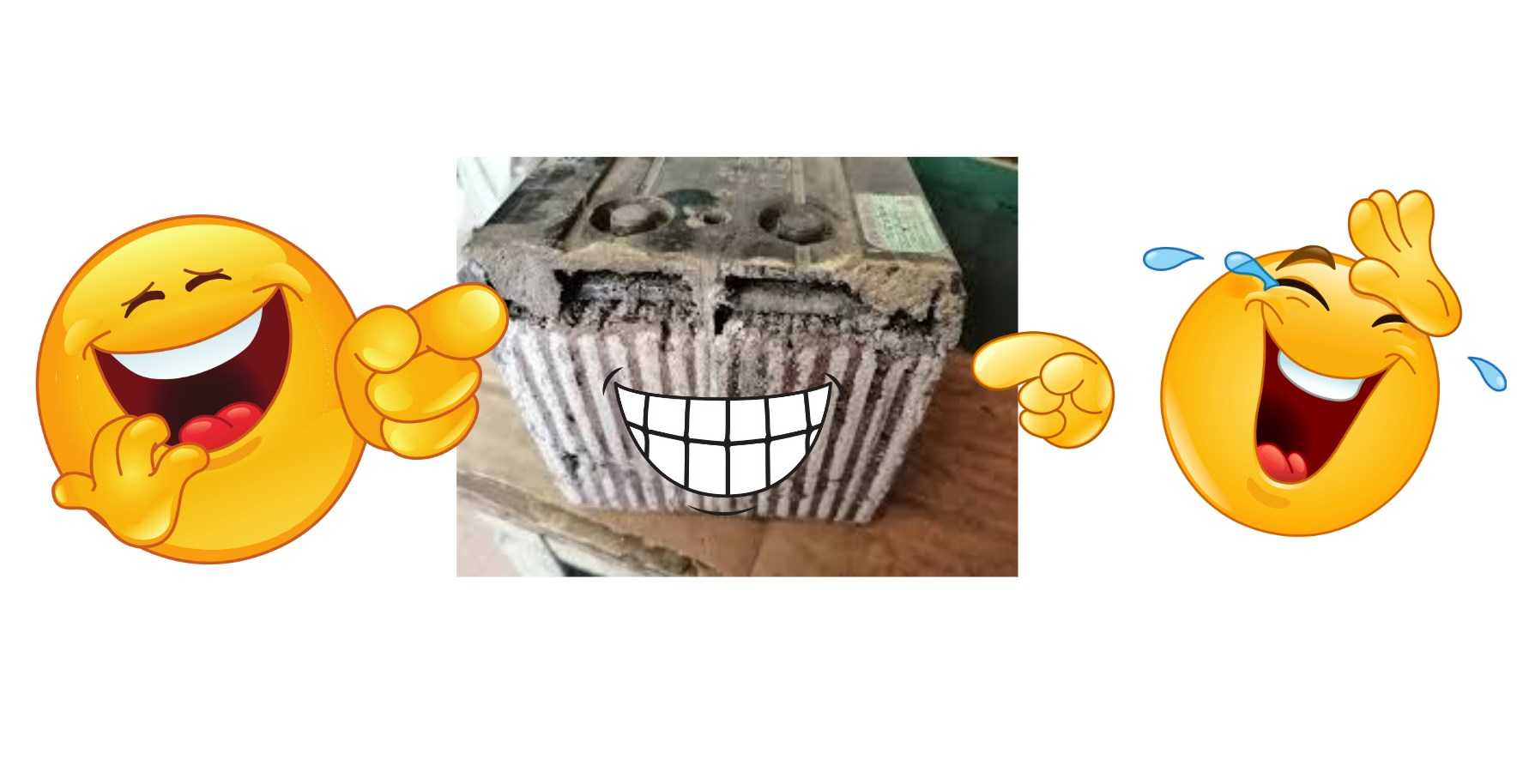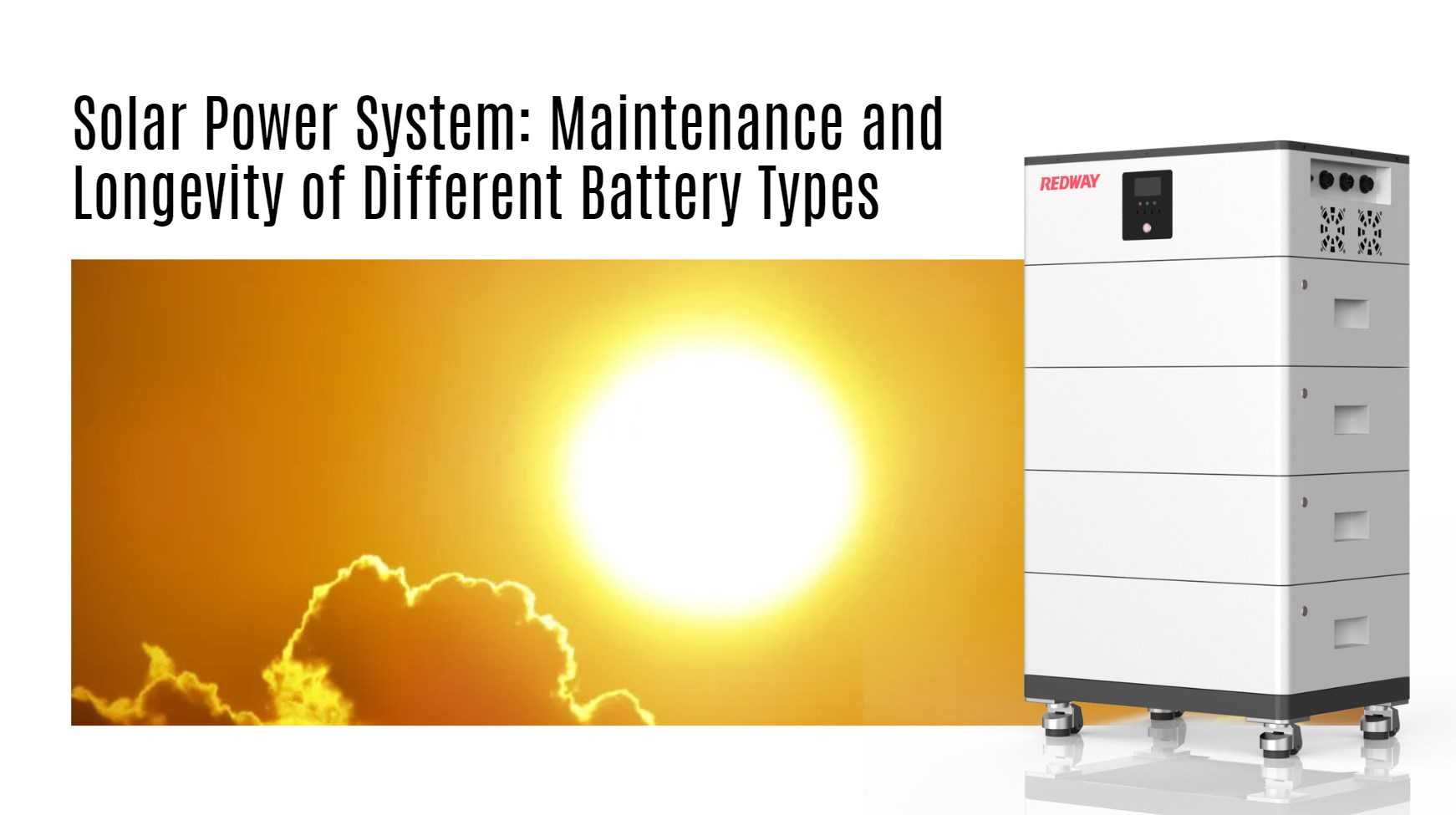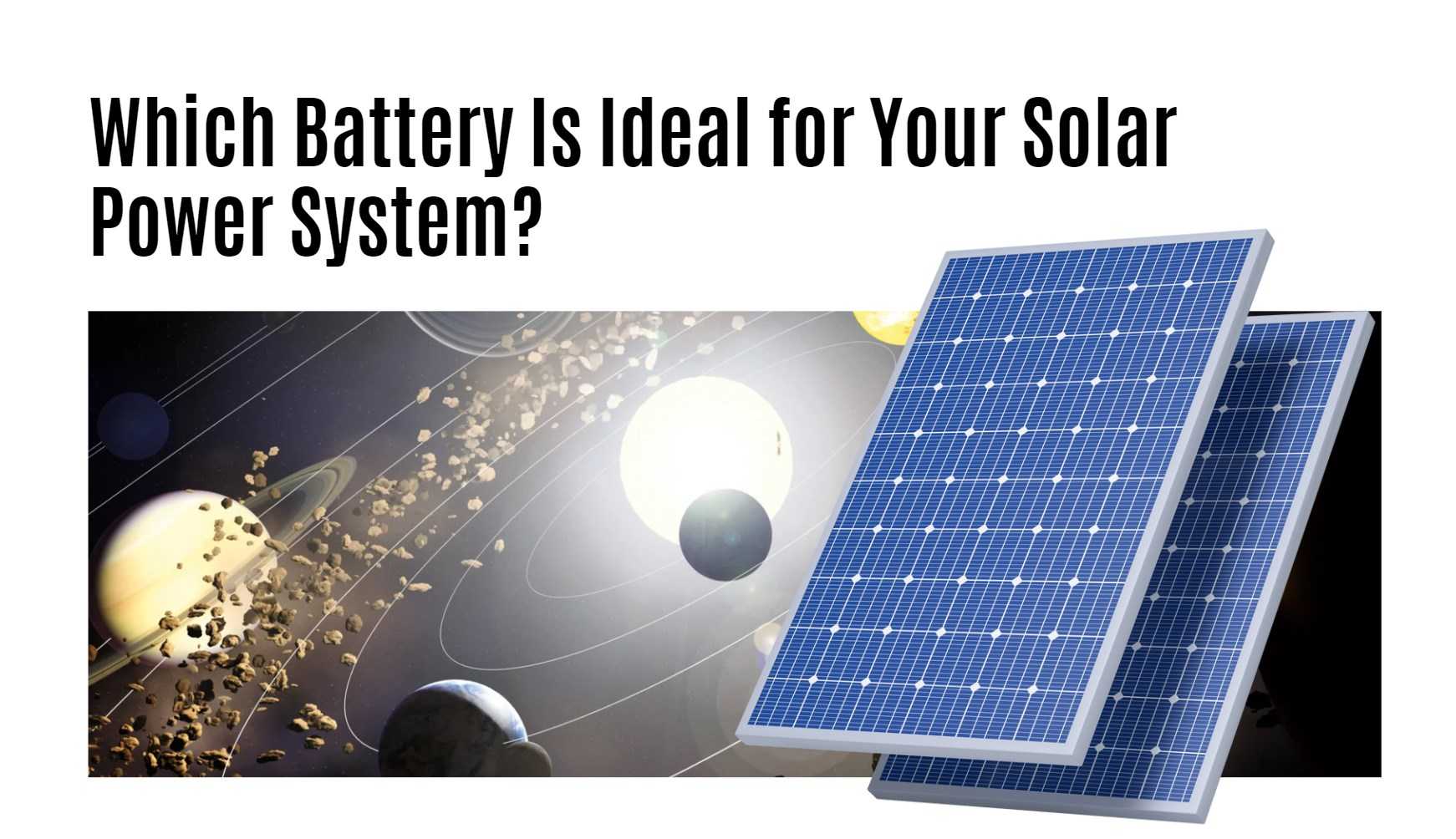Choosing the right battery for your solar power system is crucial for maximizing its efficiency and ensuring long-term sustainability. After all, a reliable battery acts as the backbone of your entire setup, storing excess energy generated by your panels and providing power during cloudy days or at night. With so many options available in the market, it can be overwhelming to determine which type of battery is ideal for your specific needs. But fear not! In this blog post, we will delve into the different types of batteries commonly used in solar power systems and weigh their pros and cons. So, whether you’re an eco-warrior looking to reduce your carbon footprint or simply want to save money on electricity bills, keep reading – we’ve got you covered!
The Importance of Choosing the Right Battery for Your Solar Power System
When it comes to harnessing solar power, choosing the right battery for your system is of utmost importance. Why? Well, think of it as the heart and soul of your setup – without a reliable battery, all that clean and renewable energy generated by your solar panels goes to waste.
The right battery ensures that you have a steady supply of power even when the sun isn’t shining brightly. It acts as an energy reservoir, storing excess electricity during peak production hours so you can use it later when needed. This means uninterrupted power supply during cloudy days or at night.
But here’s the catch: not all batteries are created equal. Each type has its own set of characteristics that make it suitable for different applications and budgets. That’s why understanding your specific needs is crucial in making an informed decision.
Choosing the wrong battery can lead to inefficient energy storage and early degradation, resulting in reduced overall performance and increased maintenance costs down the line. On the other hand, selecting the right battery will ensure optimal performance and longevity for your solar power system.
So how do you determine which one is ideal for you? The answer lies in careful consideration of factors such as capacity requirements, depth-of-discharge capabilities, cycle life expectancy, maintenance needs, cost-effectiveness, and environmental impact.
By investing time into researching various types of batteries available on the market today – from traditional lead-acid batteries to more advanced lithium-ion options – you can find one that aligns with both your budgetary constraints and long-term sustainability goals.
Remember: choosing wisely now will save you headaches (and money) later! So buckle up as we explore each type in detail to help guide you towards finding the perfect match for your solar power system needs.
Types of Batteries Used in Solar Power Systems
When it comes to solar power systems, choosing the right battery is crucial for optimal performance and efficiency. There are various types of batteries used in solar power systems, each with its own pros and cons.
One common type of battery used in solar power systems is the lead-acid battery. These batteries have been around for a long time and are known for their reliability. They are also relatively inexpensive compared to other options. However, lead-acid batteries require regular maintenance, such as checking water levels and cleaning terminals. Additionally, they have a shorter lifespan compared to other battery types.
Another popular option is lithium-ion batteries. These batteries are lightweight and compact, making them ideal for small spaces or off-grid applications. They also have a longer lifespan and higher energy density than lead-acid batteries. However, lithium-ion batteries can be more expensive upfront.
Other less common types include nickel-cadmium (NiCd) batteries and flow batteries. NiCd batteries have excellent cycling capabilities but contain toxic materials that require proper disposal. Flow batteries offer scalability but can be complex to install and maintain.
When choosing a battery for your solar power system, consider factors like cost, space availability, required maintenance, lifespan, energy density requirements, cycling capabilities, environmental impact concerns,and safety considerations.
Ultimately,the best choice will depend on your specific needsand priorities.
Now that you know about the different types ofbatteries available,you can make an informed decisionfor your solar power system.
Lead-Acid Batteries: Pros and Cons
Lead-acid batteries have been a popular choice for solar power systems for many years due to their affordability and reliability. These batteries are composed of lead plates submerged in sulfuric acid, which allows them to store and release electrical energy efficiently.
One advantage of lead-acid batteries is their ability to handle high surge currents, making them ideal for applications that require a sudden burst of power. Additionally, they have a relatively long lifespan, lasting anywhere from 5 to 15 years with proper maintenance.
However, there are some drawbacks to using lead-acid batteries in solar power systems. They are quite heavy and bulky compared to other battery types. This can make installation and transportation more challenging. Lead-acid batteries require regular maintenance such as checking electrolyte levels and ensuring proper ventilation.
Furthermore, these batteries have a limited depth of discharge (DoD), meaning that only a portion of their total capacity should be used before recharging. This can result in reduced usable energy storage compared to other battery technologies.
In terms of cost-effectiveness, lead-acid batteries tend to have lower upfront costs but may require more frequent replacements over the system’s lifetime compared to lithium-ion alternatives.
While lead-acid batteries offer certain advantages such as affordability and durability, it’s important for individuals considering a solar power system to weigh the pros and cons carefully before making an informed decision about the type of battery that best suits their needs.

Lithium-Ion Batteries: Pros and Cons
Lithium-ion batteries are becoming increasingly popular in solar power systems due to their numerous advantages. One of the key benefits is their high energy density, which means they can store a significant amount of energy in a compact size. This is particularly important for residential solar installations where space may be limited.
Another advantage of lithium-ion batteries is their longer lifespan compared to other battery types. These batteries can last up to 10 years or more, depending on usage and maintenance. Additionally, they have a lower self-discharge rate, meaning they lose less energy when not in use.
One notable feature of lithium-ion batteries is their fast charging capabilities. They can charge at a much faster rate than lead-acid batteries, allowing for quicker recharging times and increased system efficiency.
Furthermore, lithium-ion batteries are lightweight and portable, making them easier to install and transport if necessary. This flexibility makes them an excellent choice for off-grid applications or mobile solar setups.
However, it’s worth noting that lithium-ion batteries tend to be more expensive upfront compared to other battery options like lead-acid. However, when considering the longer lifespan and higher efficiency offered by these batteries, the initial cost may be justified in the long run.
In conclusion
Lithium-ion batteries offer numerous advantages for solar power systems such as high energy density, longer lifespan, fast charging capabilities, portability, and overall system efficiency. While they may come with a higher price tag initially,
their long-term benefits make them an ideal choice for those looking to maximize the performance of their solar installations.
Factors to Consider When Choosing a Battery for Your Solar Power System
When it comes to choosing a battery for your solar power system, there are several factors that you need to consider. First and foremost is the capacity of the battery. You want to ensure that the battery has enough storage capacity to meet your energy needs during both peak and off-peak times.
Another important factor to consider is the depth of discharge (DOD). This refers to how much of the battery’s total capacity can be used before it needs recharging. A higher DOD means more usable energy, but also decreases the lifespan of the battery.
The charging efficiency of the battery is another crucial consideration. You want a battery that charges quickly and efficiently from your solar panels. Look for batteries with high charge acceptance rates.
Next, think about cycle life – this refers to how many times a battery can be charged and discharged before its capacity starts degrading significantly. Batteries with longer cycle lives will last longer and provide better performance over time.
Temperature tolerance is another key factor when choosing a battery for your solar power system. Extreme temperatures can negatively impact a battery’s performance, so look for batteries that have good temperature tolerances suitable for your location.
Cost is always an important consideration. While lithium-ion batteries may have higher upfront costs compared to lead-acid batteries, they often offer better longevity and performance in the long run.
Considering these factors will help you choose a battery that meets your specific requirements and maximizes the efficiency of your solar power system without breaking the bank!
Maintenance and Longevity of Different Battery Types
When it comes to choosing a battery for your solar power system, considering maintenance and longevity is crucial. After all, you want a battery that will last as long as possible without requiring excessive maintenance.
Lead-acid batteries, although commonly used in solar power systems, require regular maintenance to ensure optimal performance. This includes checking the water levels and specific gravity regularly. Additionally, lead-acid batteries have a limited lifespan compared to other options.
On the other hand, lithium-ion batteries are known for their low maintenance requirements. They do not need regular watering or specific gravity checks like lead-acid batteries do. Moreover, lithium-ion batteries tend to have a longer lifespan than lead-acid ones.
Factors such as temperature can also affect the longevity of different battery types. Extreme temperatures can shorten the lifespan of both lead-acid and lithium-ion batteries. However, proper insulation and ventilation can help mitigate this issue.
In conclusion (as per instructions), considering the required maintenance and expected longevity is essential when selecting a battery for your solar power system. While lead-acid batteries may be more affordable initially, they require more upkeep in terms of regular maintenance compared to lithium-ion batteries which offer lower maintenance requirements and longer lifespans overall.

Conclusion
Choosing the right battery for your solar power system is crucial to ensure optimal performance and longevity. While both lead-acid and lithium-ion batteries have their pros and cons, it ultimately depends on your specific needs and budget.
Lead-acid batteries are more affordable initially, but they require regular maintenance and have a shorter lifespan compared to lithium-ion batteries. On the other hand, lithium-ion batteries are more expensive upfront but offer higher energy density, longer lifespan, and require little to no maintenance.
When deciding which battery type to choose for your solar power system, consider factors such as capacity requirements, space availability, budget constraints, and desired level of maintenance. It’s also essential to consult with a professional installer or manufacturer who can provide expert advice tailored to your specific situation.
Remember that investing in high-quality batteries will not only maximize the efficiency of your solar power system but also save you money in the long run by reducing replacement costs and minimizing downtime.
In conclusion (without using “In conclusion”), selecting the ideal battery for your solar power system requires careful consideration of various factors. By understanding the pros and cons of different types of batteries available in the market today – lead-acid versus lithium-ion – you can make an informed decision that aligns with your energy needs, budget constraints, and sustainability goals.
Ensure you prioritize reliability, efficiency, longevity when making this important investment. With proper research and guidance from experts in renewable energy systems like installers or manufacturers specializing in solar panels themselves- finding just what suits best becomes achievable! So take control over how efficiently electricity generated through sunlight gets stored within these systems; don’t miss out on any opportunities for self-sufficiency while cutting down dependencies upon fossil fuels!




